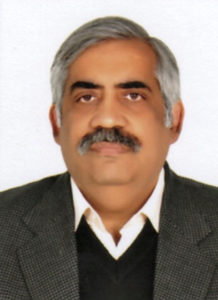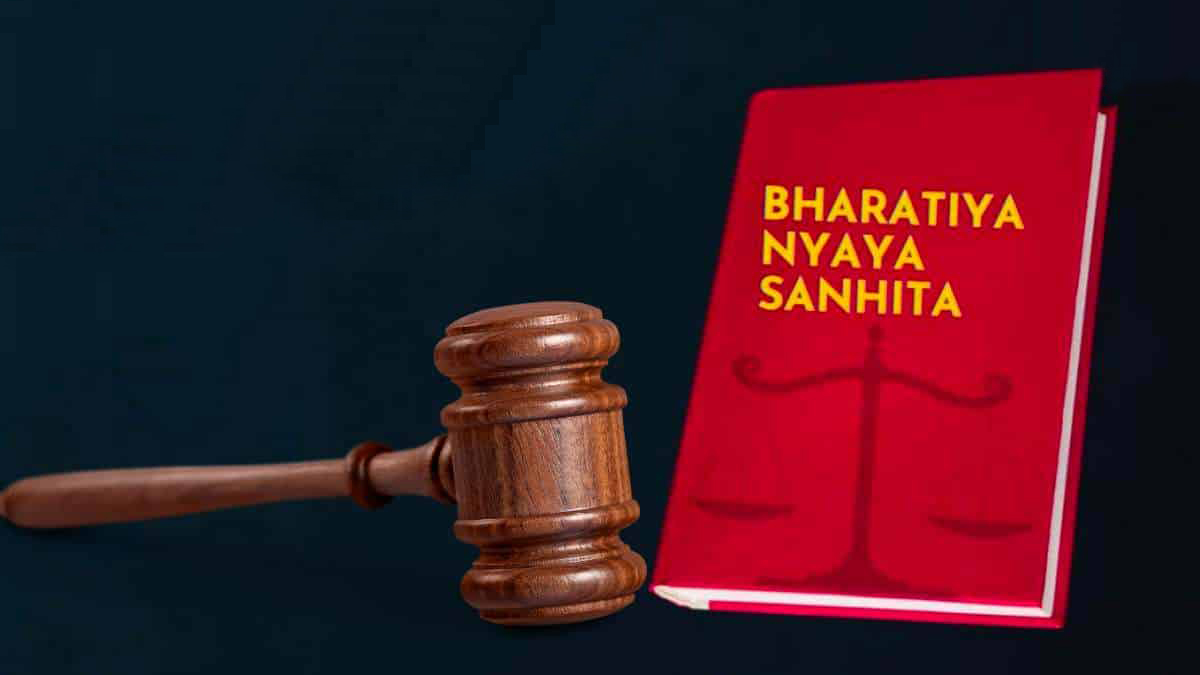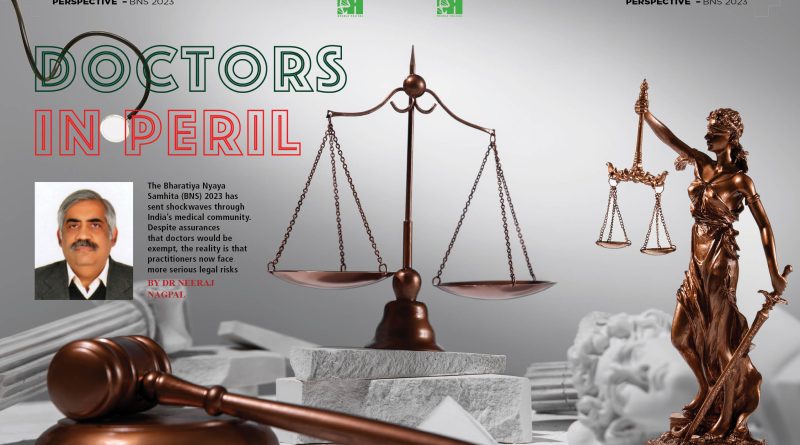Doctors in Peril
 The Bharatiya Nyaya Samhita (BNS) 2023 has sent shockwaves through India’s medical community. Despite assurances that doctors would be exempt, the reality is that practitioners now face more serious legal risks
The Bharatiya Nyaya Samhita (BNS) 2023 has sent shockwaves through India’s medical community. Despite assurances that doctors would be exempt, the reality is that practitioners now face more serious legal risks
By Dr Neeraj Nagpal
The Medicos Legal Action Group (MLAG) comprises approximately 1,250 doctors practicing modern scientific medicine from across India. Our group is dedicated to addressing legal issues that adversely impact the medical profession. The introduction of the Bharatiya Nyaya Samhita (BNS) 2023, which replaces the Indian Penal Code (IPC) of 1860, has sparked significant concern among the medical community. We wish to bring our representation on this matter as under:
When the BNS Bill was introduced on the floor of the house, the government clearly stated that doctors would not be subject to its provisions regarding alleged professional medical negligence. However, upon the Act’s notification, it became evident that the provisions concerning doctors are, if anything, more stringent than those under the IPC 1860. Under Section 304A of the IPC, a medical professional could face prosecution and punishment for death due to negligence, with a jail term of up to two years and/or a fine. The BNS, under Section 106(1), imposes both a jail term and a fine.
It is noteworthy that only doctors practicing modern scientific medicine are specifically mentioned in Section 106(1). Registered medical practitioners under this provision retain the two-year term of imprisonment. However, this raises the question: Will doctors practicing Indian systems of medicine face a harsher penalty of up to five years’ imprisonment for death due to negligence, or has it been assumed that these practitioners will never face prosecution for criminal negligence?
No doctor desires to harm their patient. Patients seek medical care for their ailments, and doctors, acting in good faith, strive to assist them to the best of their abilities. Sometimes they succeed, and sometimes they do not.
The BNS, under Sections 25, 26, 27, and 30, provides protection for those who cause harm in good faith and for the benefit of the person harmed. If this is the case, why are medical services provided by doctors being subjected to criminal courts?
Moreover, certain provisions of the BNS, such as Sections 117 and 124, are prone to misuse, potentially leading to the blackmail of doctors due to the ambiguous language employed. Acts causing permanent damage, deformity, or a vegetative state are punishable with rigorous imprisonment ranging from 10 years to life. A vegetative state often results when a patient’s brain suffers hypoxic damage during cardiac arrest. Although the patient is revived through Cardiopulmonary Resuscitation (CPR) and the heart resumes beating, the individual may remain only partially aware or unaware of their surroundings, unresponsive or partially responsive to stimuli. In cases where patients experience cardiac arrest in a hospital setting, approximately 75% of those revived are likely to end up in a vegetative state. This presents a dilemma for doctors working in intensive care units, where up to 20 patients may suffer cardiac arrest daily: should they attempt resuscitation or not?
 Under the BNS, if a patient dies and the doctor is found negligent, the punishment is a two-year jail term. However, if the patient survives but remains in a permanent vegetative state due to brain hypoxia, the penalty could be as severe as 10 years to life imprisonment. Doctors performing CPR cannot predict whether the patient’s heart will start beating successfully or whether the patient will regain consciousness. Similarly, complications such as loss of vision following cataract surgery due to endophthalmitis, amputation of fingers due to gangrene following intravenous drug administration, or delayed swelling leading to gangrene and amputation after a plaster cast are all examples of permanent damage or deformity resulting from medical procedures.
Under the BNS, if a patient dies and the doctor is found negligent, the punishment is a two-year jail term. However, if the patient survives but remains in a permanent vegetative state due to brain hypoxia, the penalty could be as severe as 10 years to life imprisonment. Doctors performing CPR cannot predict whether the patient’s heart will start beating successfully or whether the patient will regain consciousness. Similarly, complications such as loss of vision following cataract surgery due to endophthalmitis, amputation of fingers due to gangrene following intravenous drug administration, or delayed swelling leading to gangrene and amputation after a plaster cast are all examples of permanent damage or deformity resulting from medical procedures.
Our greatest concern is that punishments are envisioned for doctors who have “knowledge” that their actions may cause harm. It is not in society’s best interest to be treated by doctors who are ignorant of the potential side effects and complications of treatments. We have been trained and are knowledgeable about the risks associated with diseases and the potential harms and benefits of various treatment modalities.
A police official seeking to extort money from a doctor in whose hospital a patient has died could easily escalate a case under Section 106(1) to Section 103 due to the doctor’s knowledge. Although such acts by police personnel would likely be rectified by the courts, it is the judicial process, not just the final verdict, that is a source of anxiety for doctors. Reputations built over years of hard work can be destroyed by such prosecutions.
Beyond these concerns, there are numerous other sections in the BNS that could create difficulties in patient care, leaving doctors in a constant state of uncertainty when making critical decisions. Shaky hands should not hold a scalpel. We need to empower doctors to do their best in emergencies, not bind them in straightjackets.
We, therefore, urge that medical services provided by doctors be entirely removed from the purview of the BNS. To compensate patients, there are already multiple avenues, including the Consumer Protection Act (CPA), and to punish erring doctors, State Medical Councils are empowered. This is not to say that we advocate for leniency towards doctors who commit criminal acts, such as driving under the influence and causing a fatal accident. What we ask is that professional services and allegations of medical negligence be excluded from the scope of the BNS.
(The writer is Managing Trustee, Medicos Legal Action Group (MLAG), and Ex-President, IMA Chandigarh)

